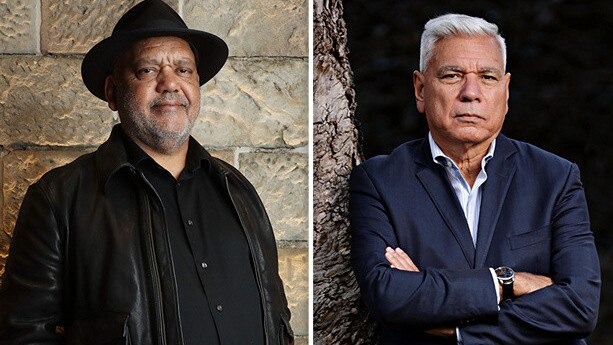The Voice: Yes23 campaign spends big on social ads but voters unswayed
The Yes23 campaign spent more than $500k on social media ads in just one month, but polling reveals one in three voters are not convinced by its arguments for a Voice to Parliament.
NSW
Don't miss out on the headlines from NSW. Followed categories will be added to My News.
New polling shows that despite being the biggest political advertising spender on Facebook and Instagram in Australia, almost one in three voters don’t rate any of the Yes campaign’s arguments as compelling reasons to vote for the Voice.
Earlier this month pollster RedBridge asked voters to identify compelling reasons to vote Yes or No.
The most popular answer respondents gave as a reason to vote against the Voice was the No campaign’s key message that “it divides us”, which resonated with almost a quarter of voters.
Two other key No messages that “there are not details” and “it won’t help Indigenous Australians” were between them regarded as compelling reasons by another 30 per cent.
In contrast, the most popular of the Yes campaign’s arguments for the Voice, “that it was initiated by Aboriginal and Torres Strait Islander people” was considered compelling by only 16 per cent of voters.
The most compelling reason to vote for the Voice, with almost 30 per cent of voters, was not a Yes campaign argument but “other”.
The results come as a Sunday Telegraph analysis of social media advertising from the major Yes and No campaigns has found Yes23 is far outspending No backer Fair Australia on Meta platforms Facebook and Instagram.

From August 7 to September 5, Yes23 spent $512,831 on 4786 Facebook and Instagram ads.
In contrast, Advance Australia, which runs five different anti-Voice Facebook pages including Fair Australia and Referendum News, paid $64,165 for 135 ads.
Australians for Unity, another major No campaign, spent $22,849 on 22 ads.
RedBridge director Kosmos Samaras said the polling suggested the Yes campaign’s messaging was off target.
“Our findings suggest a majority of those surveyed who are voting Yes are doing so for none of the key asks put out there by the Yes campaign,” he said.
“This suggests their research has completely missed the mark here and not identified the real drivers behind why people are voting Yes or what may help convince undecided voters.”
Dr Andrew Hughes, lecturer in political marketing at Australian National University, said despite the Yes campaign spending big, they were failing to hit the right audiences.
But the No campaign was relying on existing conservative voices and influencers.
“It’s strategy – Yes are less reliant on content makers, it’s less grassroots and more top down, trying to control the narrative and get a message out,” he said.
“For whatever reason they aren’t using more organic channels like celebrity and influencers … whereas No are using organic content, they don’t need to spend big at the moment, they’ve got organic content makers and influencers doing the work for them.”
Dr Hughes said ads getting distributed more broadly like on Facebook and Instagram doesn’t necessarily mean the messaging cuts through.
Got a news tip? Email weekendtele@news.com.au
Read related topics:Voice To Parliament




